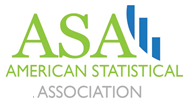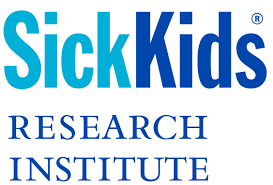SORA-TABA Workshop on Regression Modeling Strategies
The Division of Biostatistics at the Dalla Lana School of Public Health is pleased to host the SORA-TABA Workshop & DLSPH Biostatistics Research Day. The event brings together regional and local statistical communities who are interested in biostatistics, financial statistics and other applied areas of statistics.
Proud Sponsors of the event include Alimentiv Statistics, York University, American Statistical Association and the Sick Kids Research Institute.




In addition to the lecture presentation, the workshop will include poster presentations by participants; students and post-docs are particularly encouraged to present their research or practicum work, and three poster awards will be given at the closing ceremony.
Regression Modeling Strategies
Instructor: Frank Harrell; Vanderbilt University
Regression models are frequently used to develop diagnostic, prognostic, and health resource utilization models in clinical, health services, outcomes, pharmacoeconomic, and epidemiologic research, and in a multitude of non-health-related areas. Regression models are also used to adjust for patient heterogeneity in randomized clinical trials, to obtain tests that are more powerful and valid than unadjusted treatment comparisons. Models must be flexible enough to fit nonlinear and non-additive relationships, but unless the sample size is enormous, the approach to modeling must avoid common problems with data mining or data dredging that result in overfitting and a failure of the predictive model to validate on new subjects. All standard regression models have assumptions that must be verified for the model to have power to test hypotheses and for it to be able to predict accurately. Of the principal assumptions (linearity, additivity, distributional), this short course will emphasize methods for assessing and satisfying the first two. Practical but powerful tools are presented for validating model assumptions and presenting model results. This course provides methods for estimating the shape of the relationship between predictors and response.
The first part of the course presents the following elements of multivariable predictive modeling for a single response variable: using regression splines to relax linearity assumptions, perils of variable selection and overfitting, where to spend degrees of freedom, shrinkage, imputation of missing data, data reduction, and interaction surfaces. Then a default overall modeling strategy will be described, with an eye towards “safe data mining”. This is followed by methods for graphically understanding models (e.g., using nomograms) and using re-sampling to estimate a model’s likely performance on new data.
Participants should have a good working knowledge of multiple regression. The following articles might be read in advance: Harrell, Lee, Mark: Stat in Med 15:361-387, 1996. Spanos, Harrell, Durack: JAMA 262:2700-2707, 1989. See http://fharrell.com/links for more background information and resources.
About the Instructor:
- Professor and founding Chair of the Department of Biostatistics, Vanderbilt University School of Medicine, Nashville TN USA
- PhD in Biostatistics from U. North Carolina
- Extensive work in biomedical and pharmaceutical research
- ASA Fellow and winner of the ASA WJ Dixon Award for Excellence in Statistical Consulting in 2014
- Publications
- Active on stats.stackexchange.com – see my posts here
- Written several R packages including Hmisc and rms
- Used R intensively since 1999 and am a member of the R Foundation
- Author of Regression Modeling Strategies, 2nd Edition
- Statistical knowledge outside the areas of regression modeling strategies and Bayes is in BBR
- Expert Statistical Advisor to the Office of Biostatistics, Center for Drug Evaluation and Research, FDA
Get Tickets
TALK TO AN EXPERT
Set up an introductory call, have us provide you with a proposal, a review of your clinical development plan or protocol, guidance on your data, a demo of our eTMF or pricing information. Contact us. We love talking Data.
